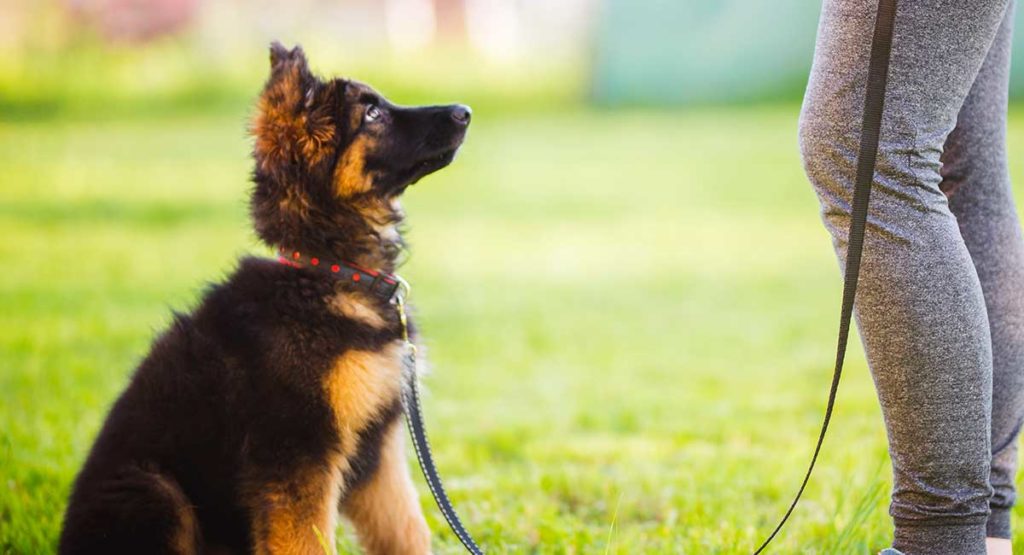German Shepherd Puppy Training

German Shepherds are a relatively newer breed dog, originating in Germany and dating back to 1899. German Shepherds are working-class dogs that possess strength, and intelligence and excel in obedience training. So, German Shepherd puppy training can be quite a joy if your pup is particularly smart or responsive in your home.
How to Choose Your Puppy
When you pick out your German Shepherd puppy, keep in mind how much history has gone into developing this breed. Like many puppies, they can be prone to some health problems such as hip or elbow dysplasia. The average life span for your dog is about 7 to 10 years. Choose a puppy that is at least eight weeks old, one who is friendly, not aggressive, and spunky. Make sure it is in good your vet gives him a good bill of health. There are several puppyhood health problems that a German Shepherd potentially might have.
You should consider early on to start training your German Shephard when you first bring it home. Just be sure it is old enough and that it is properly socialized with other people or dogs. You can avoid potential issues in the future with people and other dogs if you have taken to the time to train your puppy.
Basics of Training Your German Shepherd Puppy
Start basic house training when feeling your puppy is old enough and quite honestly it is never too early to start them out. German Shepherds are smart and can be especially teachable at a young age. During this time it is highly recommended you use crate training during this housebreaking period. It will take time and patience to complete the housebreaking process, but once they are broken, a German Shepherd is extremely careful not to violate its home.
When you feel that your puppy has demonstrated that it knows the basics you will need to create an environment where you show your dog that you are the alpha pack leader. You can now train your German Shepherd to not bite or nip, using toys as a means for them to chew. At this early age, it is a good idea to teach them not to jump on the couch or even sleep in your bed. Teach your dog to stay in the crate at night or during nap times. Dogs adapt to this environment quickly. At first, they might cry or whine but resist the temptation from allowing them to come out of the crate. The crate can be used as much as possible during these early months while at the same time, you start to stretch out how long the puppy can stay in there.
Once your puppy training begins, by allowing about 3 to 6 months you can now start the obedience phase focusing on the commands such as sit, stay, lay down, focus on you, and come on command as well as not pull on the lease.
After some time you will find that your German Shepherd will be very adept at picking up on these cues and at the beginning he might surprise you with what you have taught him. If you notice that your dog has difficulty focusing you will need to have patience while creating more intense and extensive training for your dog to teach him who is in charge.
The Benefits of Using Puppy Training to Protect Them
Due to their innate curiosity and bold nature, a German Shepherd will at times try to explore as much as possible. During your teaching sessions in the street, teach them early not to chase cars and do teach them to stop at the curb. At the same time make sure the dog does not run away from you in public, in other words never take a German Shepherd off its leash until you can be sure it will return upon being called and not run too far from you. The risks are certainly there with German Shepherds and you will want to be certain that your dog develops this obedience.
Proper puppy training, in the beginning, may seem difficult at first, just remember that the both of you are learning from each other. You are setting the example of becoming the alpha dog. Eventually, you’ll find that a German Shepherd is among the most loyal, attentive dogs you could own and your hard work and patience will pay off. Once you show them who is in charge, they will stay by your side, follow your instructions and learn to stay clean indoors. However, the only way to accomplish this is to start early during your training and be consistent in your instructions now and in the future.